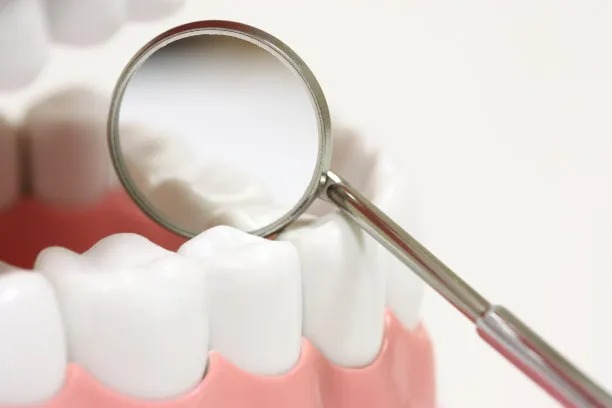Summary: Dental implant treatment is revolutionizing how we approach tooth loss, offering not just aesthetic improvements but significant functional benefits. This comprehensive guide delves into the procedures involved, the myriad advantages of implants over traditional dentures, and the necessary aftercare strategies for optimal long-term results. Each aspect helps underscore the transformative potential that dental implants can provide for restoring smiles and enhancing overall quality of life. Understanding these key components equips patients with essential knowledge, enabling informed decisions regarding their dental health and restoring confidence in their smiles.
1. Understanding the Dental Implant Procedure

The dental implant procedure is a multi-step process aimed at replacing missing teeth with artificial ones that look and function like real teeth. Initially, a thorough examination and imaging studies are conducted to assess the patients oral health. This evaluation helps in determining the appropriate treatment plan tailored to each individual’s needs.
Once the initial assessment is complete, the first phase of the procedure begins. The dentist surgically inserts the implant—usually a titanium post—into the jawbone where the missing tooth once was. This step is crucial as the implant serves as the root for the artificial tooth that will later be attached.
After the insertion, a healing period follows, allowing the bone to fuse with the implant in a process called osseointegration. This phase typically lasts several months and is essential for ensuring the long-term stability and durability of the implant.
2. Aesthetic and Functional Benefits of Implants
One of the primary benefits of dental implants is their remarkable aesthetic appeal. Unlike traditional dentures that can look artificial, implants are designed to fuse seamlessly with the jawbone, providing a natural look and feel. Patients often find that their confidence and self-esteem improve dramatically once they regain their missing teeth.
Additionally, implants function just like natural teeth, allowing patients to eat, speak, and smile without the discomfort or embarrassment often associated with dentures. This functional restoration significantly enhances a patient’s quality of life, permitting them to enjoy their favorite foods without worry.
Furthermore, dental implants help prevent bone loss that typically occurs after tooth loss. The pressure exerted on the jawbone by chewing helps maintain bone density, ensuring facial structure and integrity are preserved over time.
3. Essential Aftercare Strategies for Longevity
Proper aftercare is crucial for the longevity of dental implants. Patients are advised to maintain strong oral hygiene routines, including regular brushing and flossing, to prevent infection and support healing. Visiting the dentist for check-ups is also vital, as professionals can monitor the implant and surrounding area for any potential issues.
Additionally, lifestyle choices play a significant role in the success of dental implants. Avoiding tobacco products and excessive alcohol consumption is recommended, as these can hinder healing and increase the risk of implant failure.
Diet also impacts the health of dental implants. A balanced diet rich in vitamins and minerals supports oral health, promoting faster healing and the longevity of the implants. Incorporating foods high in calcium and vitamin D can be especially beneficial.
4. Frequently Asked Questions About Dental Implants
Many patients have questions regarding the dental implant process, its longevity, and associated costs. A common query pertains to the lifespan of implants, as they can last upwards of 10 to 15 years, or even longer, with proper care.
Another frequently asked question revolves around the pain associated with the procedure. While some discomfort is expected, modern anesthesia techniques ensure that the process is manageable, with many patients reporting mild discomfort similar to a tooth extraction.
Lastly, the cost of dental implants can vary significantly based on several factors, including the number of implants required and the complexity of the case. Insurance coverage may also vary, making it important for patients to discuss financing options with their dental care providers.
Summary:
In conclusion, dental implants provide a revolutionary solution for those facing the challenges of tooth loss. By understanding the procedure, recognizing the benefits, and adhering to essential aftercare strategies, patients can optimize their dental health and maintain a confident smile. Whether considering dental implants for aesthetic reasons or functional restoration, this comprehensive guide aids in making informed decisions tailored to personal needs.
This article is compiled by Vickong Dental and the content is for reference only.
Vickong Dental
Vickong Dental is a large medical group established in Hong Kong in 2008 by professors from well-known medical universities in Guangdong and Hong Kong, as well as medical doctors from key national '985' universities (including Master's supervisors and senior professors). The chain of branches brings together expert dentists with PhDs and Master's degrees from Hong Kong and Mainland China, committed to providing high-quality dental treatment.
"Vickong Dental Practices the University Motto of 'Healing and Serving Society,' with a Stable Operation for Sixteen Years. It Has Been honored with Hong Kong Enterprise Leaders's Choice,' and is a Global Trusted Implant Center for the Nobel Implant System. Recommended by Hong Kong Metro Broadcast and Guangdong Television, it Serves Customers from Over Thirty Countries and Regions, Gaining the Trust and Favor of Citizens from the Guangdong-Hong Kong-Macau Greater Bay Area and Surrounding Cities.

Thousands of customers' unanimous praise
The most recognized and highly recommended dental service by customers in the Guangdong-Hong Kong-Macau Greater Bay Area
We Ensure You Receive Detailed Care and Attention Here
Hong Kong standards, Shenzhen prices, Your Trusted English-speaking dentists

Vickong Dental Medical-Grade Instrument Disinfection Process
Vickong Dental Medical-Grade Instrument Disinfection Process

Vickong Dental Chain: A Warm and Comfortable Environment for Treatment






Appointment Hours

Q&A
Why choose Vickong Dental?
Vickong Dental practices the university motto 「Medicine to Benefit Society」, with each branch bringing together highly qualified dentists with doctoral and master’s degrees from Hong Kong and the Mainland, and has maintained seventeen years of steady operation。Recipient of 「2024 Hong Kong Enterprise Leaders Brand」, 「2025 Hong Kong Enterprise Leaders Brand」, a Nobel Biocare Global Trusted Implant Center, and a brand recommended by Metro Radio Hong Kong and Guangdong TV。
To date, we have served customers from more than thirty countries and regions,earning exceptionally high word-of-mouth recognition and trusted recommendations from residents across the Guangdong-Hong Kong-Macao Greater Bay Area and surrounding cities
We have eight major branches in Zhuhai、Shenzhen,and a consultation and service assurance center in Hong Kong,so you can book a free consultation at any time for any questions,which is very reassuring.
If I do not accept the quotation after the CT scan, will I be charged??
No! As long as the actual treatment has not started, you will not be charged any fees.
Will there be any additional charges during the treatment process?
No, there won’t be any additional charges. Before treatment begins, we will clearly explain the treatment plan and its corresponding fees. Only after the patient agrees and signs the consent form will we proceed with the dental service.
Can I pay in Hong Kong dollars?
Yes. Vickong Dental accepts payment in Hong Kong dollars. The amount will be converted based on the exchange rate of the day, and the applicable rate will be clearly communicated to you in advance.
Can I reschedule my appointment at any time?
Yes. Please contact us via **WeChat** or **WhatsApp** as early as possible, providing your original appointment time and details, along with your preferred new date and time slot for rescheduling.













